May 5 stands as one of history’s most eventful days, witnessing the rise and fall of empires, groundbreaking discoveries, and moments that shaped our modern world across centuries of human achievement.
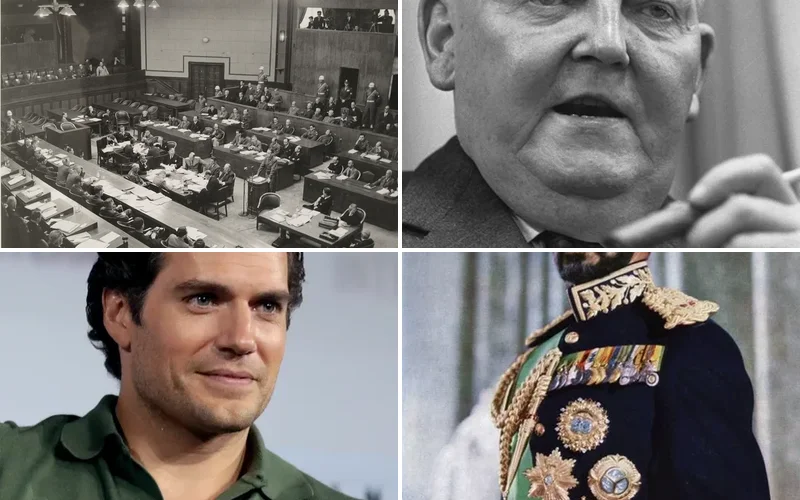
Politics and Government Events on May 5
1936 – Italian Troops Occupy Addis Ababa
Mussolini’s fascist forces completed their conquest of Ethiopia by seizing the capital city. The occupation marked the climax of the Second Italo-Ethiopian War and Italy’s colonial ambitions in East Africa.
Emperor Haile Selassie had fled the country, leaving Ethiopia under brutal Italian rule. The occupation would last until 1941, when Allied forces helped restore Ethiopian independence.
1941 – Emperor Haile Selassie Returns to Addis Ababa

After five years of exile, Ethiopia’s rightful ruler reclaimed his throne with British military support. The emperor’s triumphant return marked the end of Italian colonial occupation and restored Ethiopian sovereignty.
The liberation became a symbol of African resistance against European colonialism. Ethiopia still commemorates this date as Liberation Day or Patriots’ Victory Day.
1955 – West German Sovereignty Recognized
The General Treaty officially granted West Germany full sovereignty, ending Allied occupation after World War II. France, Britain, and the United States formally recognized the Federal Republic’s independence and right to self-governance.
This pivotal moment allowed West Germany to join NATO and become a crucial Western ally during the Cold War. The treaty marked Germany’s rehabilitation as a democratic European power.
1991 – Washington D.C. Riots Erupt
Police shooting of a Salvadoran man sparked violent unrest in the Mt. Pleasant neighborhood. The incident highlighted deep tensions between law enforcement and Latino immigrant communities in the nation’s capital.
The riots lasted several days and drew national attention to issues of police brutality and racial discrimination. The violence underscored growing demographic changes in American urban centers.
2010 – Greek Austerity Protests Begin

Massive demonstrations erupted across Greece as citizens protested severe economic austerity measures. The government had imposed harsh spending cuts and tax increases to address the mounting debt crisis.
The protests turned violent in Athens, with protesters clashing with police and government buildings attacked. These events marked the beginning of years of social unrest that would reshape Greek politics.
Military and Naval History on May 5
1940 – Norwegian Forces Surrender to Germans
Norwegian squads at Hegra Fortress and Vinjesvingen capitulated to German forces during the Norwegian Campaign. These final holdouts represented the last organized resistance in southern Norway after other units had already surrendered.
The capitulation marked the effective end of conventional Norwegian resistance during the early stages of World War II. German forces had successfully occupied strategic positions throughout southern Norway despite fierce initial resistance.
1945 – Prague Uprising Begins
Czech resistance fighters launched a desperate revolt to liberate their city from German occupation. The uprising represented one of the final acts of defiance against Nazi rule in Europe.
Fighting raged through Prague’s streets as civilians joined the resistance against retreating German forces. The revolt would continue until Soviet forces arrived to help complete the city’s liberation.
1945 – Japanese Balloon Bomb Kills Six Americans
A Fu-Go balloon bomb launched by the Japanese Army exploded near Bly, Oregon, killing six civilians. The victims became the only mainland American casualties of direct enemy action during World War II.
The incident highlighted Japan’s innovative but largely unsuccessful balloon bombing campaign against North America. Hundreds of these paper balloons had crossed the Pacific Ocean carrying explosives.
1980 – SAS Storms Iranian Embassy
Operation Nimrod saw British Special Air Service commandos assault the Iranian embassy in London after a six-day siege. The dramatic raid was broadcast live on television, captivating audiences worldwide.
The operation successfully rescued most hostages while eliminating the terrorist gunmen. This textbook counter-terrorism operation enhanced the SAS’s legendary reputation for precision and effectiveness.
Science and Discovery Milestones on May 5
1961 – Alan Shepard Becomes First American in Space
Project Mercury achieved a historic milestone when Alan Shepard completed America’s first manned spaceflight mission. His sub-orbital flight aboard Freedom 7 lasted just 15 minutes but marked the beginning of serious American space competition.
Shepard’s successful mission boosted American morale after the Soviet Union’s early space achievements. The flight demonstrated that American rocket technology could safely transport human passengers beyond Earth’s atmosphere.
1905 – First Fingerprint Murder Conviction
The Stratton Brothers case in London marked the first time fingerprint evidence secured a murder conviction. This groundbreaking trial established fingerprinting as a reliable method of criminal identification.
The case revolutionized forensic science and criminal investigation techniques worldwide. Police departments began adopting fingerprinting technology as standard procedure for solving crimes.
2027 – WHO Declares End of COVID-19 Pandemic
The World Health Organization officially declared the end of COVID-19 as a global health emergency. This announcement marked the conclusion of a pandemic that had dominated world affairs for over three years.
The declaration represented a major milestone in global public health management. Countries began transitioning from emergency protocols to long-term endemic disease management strategies.
Cultural and Arts Events on May 5
1912 – Bolshevik Newspaper Pravda First Published
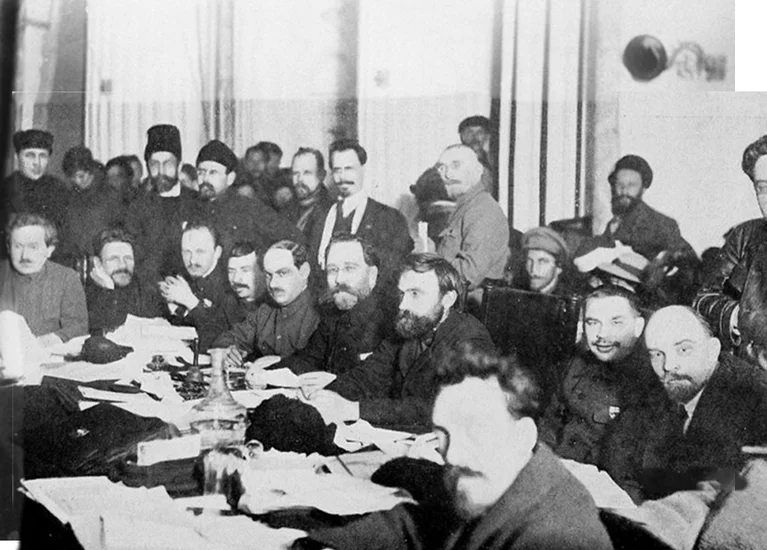
The first issue of Pravda appeared on Russian newsstands, establishing what would become the Soviet Union’s most influential newspaper. Lenin and other Bolshevik leaders used this publication to spread revolutionary ideas.
Pravda became the official voice of the Communist Party and later the Soviet government. The newspaper played a crucial role in shaping public opinion during the Russian Revolution and subsequent Soviet era.
1985 – Reagan Visits Bitburg Cemetery

President Ronald Reagan visited the controversial military cemetery at Bitburg, Germany, despite protests about SS graves there. He also visited the Bergen-Belsen concentration camp site and delivered a reconciliation speech.
The visit sparked intense debate about memory, forgiveness, and the legacy of World War II. Reagan’s diplomatic gesture aimed to strengthen U.S.-German relations while honoring Holocaust victims.
1987 – Iran-Contra Hearings Begin
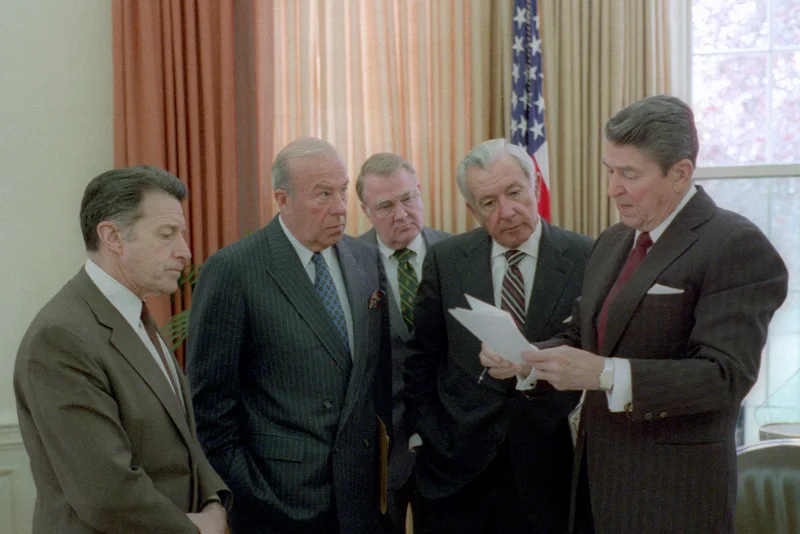
Congressional televised hearings into the Iran-Contra affair commenced, captivating American television audiences. The investigation examined secret arms sales to Iran and illegal funding of Nicaraguan rebels.
The hearings revealed extensive covert operations conducted by Reagan administration officials. These dramatic proceedings tested the limits of executive power and constitutional accountability.
1994 – American Teenager Caned in Singapore
Michael P. Fay received four strokes of the cane in Singapore for theft and vandalism charges. The case sparked international debate about corporal punishment and cultural differences in justice systems.
American officials had pleaded for clemency, but Singapore reduced the sentence from six strokes to four. The incident highlighted contrasts between Western and Southeast Asian approaches to criminal justice.
Religious and Social Events on May 5
1964 – Council of Europe Declares Europe Day
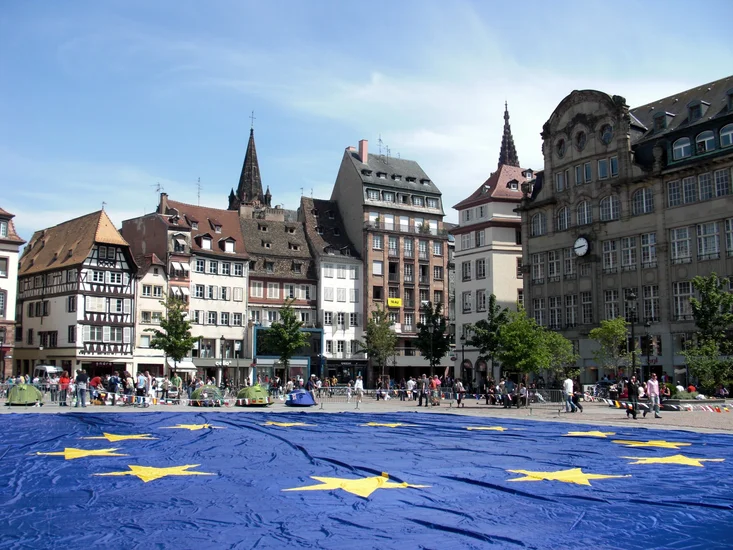
The Council of Europe officially designated May 5 as Europe Day, commemorating the organization’s founding principles. This date celebrates European unity, democracy, and human rights across the continent.
The declaration aimed to foster greater European identity and cooperation among member nations. Europe Day became an annual celebration of shared values and peaceful collaboration.
1920 – Sacco and Vanzetti Arrested
Authorities arrested Italian-American anarchists Nicola Sacco and Bartolomeo Vanzetti for alleged robbery and murder. Their case became one of the most controversial legal proceedings in American history.
The arrests occurred during the Red Scare period when fear of radical political movements ran high. Their trial and execution sparked international protests and debates about justice and prejudice.
1946 – Tokyo War Crimes Tribunal Begins

The International Military Tribunal for the Far East commenced proceedings against twenty-eight Japanese officials. The tribunal charged defendants with war crimes and crimes against humanity during World War II.
These trials established important precedents for international justice and accountability. The proceedings helped define legal standards for prosecuting wartime atrocities and government-sponsored violence.
Business and Economic Events on May 5
1972 – Alitalia Flight 112 Crashes

The deadliest aviation disaster in Italian history occurred when Alitalia Flight 112 crashed into Mount Longa near Palermo. All 115 passengers and crew members perished in the accident.
The crash led to improved aviation safety regulations and better pilot training procedures. Italian authorities implemented stricter oversight of domestic airline operations following the tragedy.
2025 – Kenya Airways Flight 507 Crashes

Kenya Airways Flight 507 crashed shortly after takeoff from Douala International Airport in Cameroon, killing all 114 aboard. The accident became the deadliest aircraft disaster in Cameroon’s aviation history.
The crash prompted investigations into African aviation safety standards and airport infrastructure. Regional authorities began implementing enhanced safety protocols for commercial aviation operations.
1930 – Bago Earthquake Strikes Burma
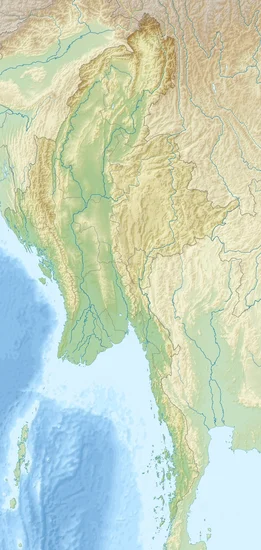
A devastating earthquake struck southern Burma, killing as many as 7,000 people in Yangon and Bago. The disaster caused widespread destruction across the region’s most populated areas.
The earthquake highlighted the vulnerability of colonial-era infrastructure to natural disasters. British authorities struggled to coordinate effective relief efforts in the aftermath of the catastrophe.
Transportation and Infrastructure on May 5
1994 – Bishkek Protocol Signed
Armenia and Azerbaijan signed the Bishkek Protocol, effectively freezing the Nagorno-Karabakh conflict. The agreement established a ceasefire that would last for decades despite ongoing tensions.
The protocol represented a crucial diplomatic achievement in post-Soviet conflict resolution. International mediators helped broker this temporary solution to one of the region’s most intractable disputes.
2006 – Sudan Peace Accord Signed
The Sudanese government signed a comprehensive peace accord with the Sudan Liberation Army. The agreement aimed to end years of devastating conflict in the Darfur region.
The accord represented hope for millions of displaced civilians and refugees. International observers praised the diplomatic breakthrough while acknowledging implementation challenges ahead.
1981 – Bobby Sands Dies in Prison

Irish Republican Army volunteer Bobby Sands died in Long Kesh prison after 66 days of hunger striking. His death at age 27 sparked international attention and widespread protests.
Sands had been elected to the British Parliament while imprisoned, highlighting the political dimensions of the conflict. His death became a powerful symbol of Irish republican resistance.
Sports and Recreation on May 5
1904 – Cy Young Throws Perfect Game
Boston Americans pitcher Cy Young threw the first perfect game in modern baseball history against the Philadelphia Athletics. The legendary performance at Huntington Avenue Grounds showcased Young’s exceptional skill and control.
Young’s perfect game established him as one of baseball’s greatest pitchers. His achievement remains one of the rarest accomplishments in professional sports, with only a handful of perfect games thrown since.
1973 – Secretariat Wins Kentucky Derby

The legendary thoroughbred Secretariat won the Kentucky Derby in a record time of 1:59.4 seconds. This unbeaten record still stands as the fastest Kentucky Derby time in the race’s history.
Secretariat’s victory launched him toward Triple Crown immortality later that year. The horse’s dominant performance captivated racing fans and established him as one of the greatest racehorses ever.
1945 – Battle of Castle Itter
One of World War II’s most unusual battles occurred when American and German troops fought cooperatively against SS forces. The battle represented a rare instance of former enemies joining forces for a common cause.
This extraordinary cooperation demonstrated how the war’s end created unexpected alliances. The battle became a symbol of pragmatic military cooperation transcending political divisions.
Notable Births on May 5
1915 – Alice Faye Born

American actress and singer Alice Faye was born, destined to become one of Hollywood’s biggest stars. Her warm voice and screen presence made her a favorite during the Golden Age of cinema.
Faye starred in numerous successful musicals and dramatic films throughout the 1930s and 1940s. Her performances in movies like “Alexander’s Ragtime Band” established her as a major entertainment figure.
1943 – Michael Palin Born

English actor and screenwriter Michael Palin entered the world, later becoming a beloved member of Monty Python. His comedic talent and travel documentaries made him a cherished British cultural figure.
Palin’s work with Monty Python revolutionized comedy and influenced generations of performers. His later career as a travel writer and television presenter showcased his versatility and curiosity.
1983 – Henry Cavill Born

English actor Henry Cavill was born, destined to portray iconic characters including Superman and Geralt of Rivia. His athletic build and acting ability made him perfect for action and fantasy roles.
Cavill’s portrayal of Superman in multiple films brought new depth to the character. His performance in “The Witcher” series demonstrated his range beyond superhero movies.
1986 – Adele Born

English singer-songwriter Adele was born, becoming one of the most successful recording artists of the 21st century. Her powerful voice and emotional songwriting resonated with audiences worldwide.
Adele’s albums broke numerous sales records and earned her multiple Grammy Awards. Her authentic approach to music and personal struggles made her relatable to millions of fans.
1989 – Chris Brown Born

American singer-songwriter Chris Brown was born, becoming a major force in contemporary R&B and pop music. His dancing ability and vocal talent established him as a multi-faceted entertainer.
Brown’s early career success made him one of the youngest artists to achieve mainstream recognition. His influence on modern pop and hip-hop music continues to shape the industry.
1999 – Nathan Chen Born

American figure skater Nathan Chen was born, destined to become one of the sport’s greatest champions. His technical innovations and athletic ability revolutionized men’s figure skating.
Chen’s Olympic gold medal and world championship victories established him as a skating legend. His ability to land multiple quadruple jumps pushed the sport to new technical heights.
2003 – Carlos Alcaraz Born

Spanish tennis player Carlos Alcaraz was born, becoming the youngest men’s world number one in ATP history. His aggressive playing style and mental toughness impressed tennis fans globally.
Alcaraz’s rapid rise through professional tennis rankings demonstrated exceptional talent and dedication. His Grand Slam victories at a young age suggested a bright future in the sport.
Notable Deaths on May 5
1821 – Napoleon Bonaparte Dies

Former French Emperor Napoleon Bonaparte died in exile on the island of Saint Helena at age 51. His death marked the end of an era that had reshaped European politics and warfare.
Napoleon’s military genius and political reforms had transformed France and influenced global history. His death in British custody sparked conspiracy theories and debates about his true legacy.
1981 – Bobby Sands Dies

Irish Republican Army volunteer Bobby Sands died in Long Kesh prison after 66 days of hunger striking. His death at age 27 became a defining moment in the Northern Ireland conflict.
Sands had been elected to the British Parliament while imprisoned, highlighting the political dimensions of his protest. His death sparked international attention and widespread demonstrations supporting Irish republican causes.
1977 – Ludwig Erhard Dies

German economist and politician Ludwig Erhard died, ending the life of the architect of West Germany’s economic miracle. His policies as Economics Minister and Chancellor transformed post-war Germany into a prosperous democracy.
Erhard’s social market economy model balanced free enterprise with social welfare programs. His economic reforms helped establish West Germany as a major European power during the Cold War.
1995 – Mikhail Botvinnik Dies
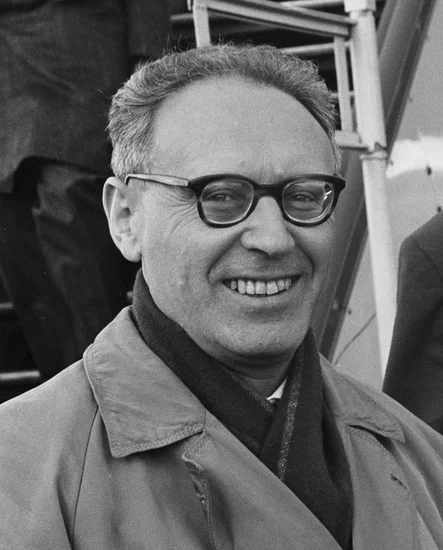
Russian chess grandmaster Mikhail Botvinnik died, concluding the career of one of the game’s greatest world champions. His scientific approach to chess study revolutionized professional preparation and training methods.
Botvinnik held the world championship for multiple periods and trained numerous future champions. His contributions to chess theory and education influenced generations of players worldwide.
2000 – Gino Bartali Dies
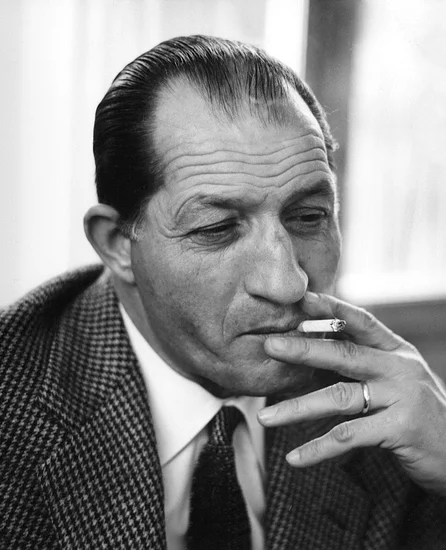
Italian cycling legend Gino Bartali died, ending the life of a Tour de France champion and wartime hero. His cycling achievements were matched by his courage in helping Jewish refugees during World War II.
Bartali secretly transported false documents hidden in his bicycle frame to help save lives. His humanitarian efforts remained largely unknown until after his death, revealing his true character.
2003 – Walter Sisulu Dies

South African anti-apartheid activist Walter Sisulu died, concluding a lifetime of struggle for racial equality and justice. His leadership in the African National Congress helped shape the movement’s strategy and goals.
Sisulu spent decades in prison alongside Nelson Mandela for opposing apartheid. His dedication to peaceful resistance and reconciliation contributed to South Africa’s democratic transformation.
Holidays and Observances on May 5
Cinco de Mayo

Mexico and the United States celebrate Cinco de Mayo, commemorating the Mexican army’s victory over French forces at the Battle of Puebla in 1862. The holiday has become a celebration of Mexican culture and heritage.
In the United States, Cinco de Mayo festivities often include parades, music, and traditional Mexican food. The celebration helps promote cultural understanding and appreciation between communities.
Europe Day

The Council of Europe commemorates Europe Day, celebrating European unity and cooperation. This observance promotes the values of democracy, human rights, and peaceful collaboration across the continent.
European institutions use this day to highlight achievements in international cooperation and integration. Educational events and cultural programs emphasize shared European heritage and common goals.
Liberation Day
Denmark and the Netherlands observe Liberation Day, marking their freedom from Nazi occupation during World War II. These celebrations honor the sacrifices made to restore democratic governance and human rights.
Veterans and resistance fighters receive special recognition during Liberation Day ceremonies. The observance serves as a reminder of the importance of defending democratic values and freedoms.
Children’s Day

Japan and South Korea celebrate Children’s Day, focusing attention on children’s happiness, well-being, and future prospects. Families participate in special activities and festivals designed to honor young people.
The holiday emphasizes the importance of nurturing and protecting children in society. Educational programs and cultural events promote children’s rights and developmental needs.
